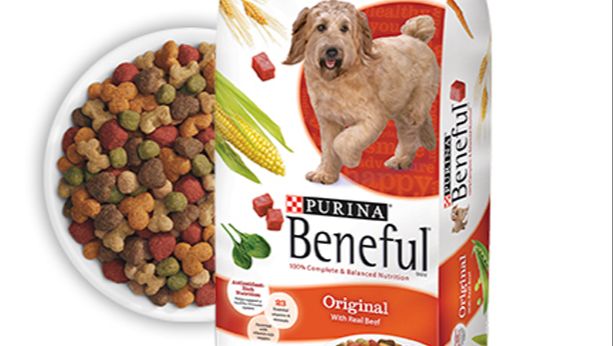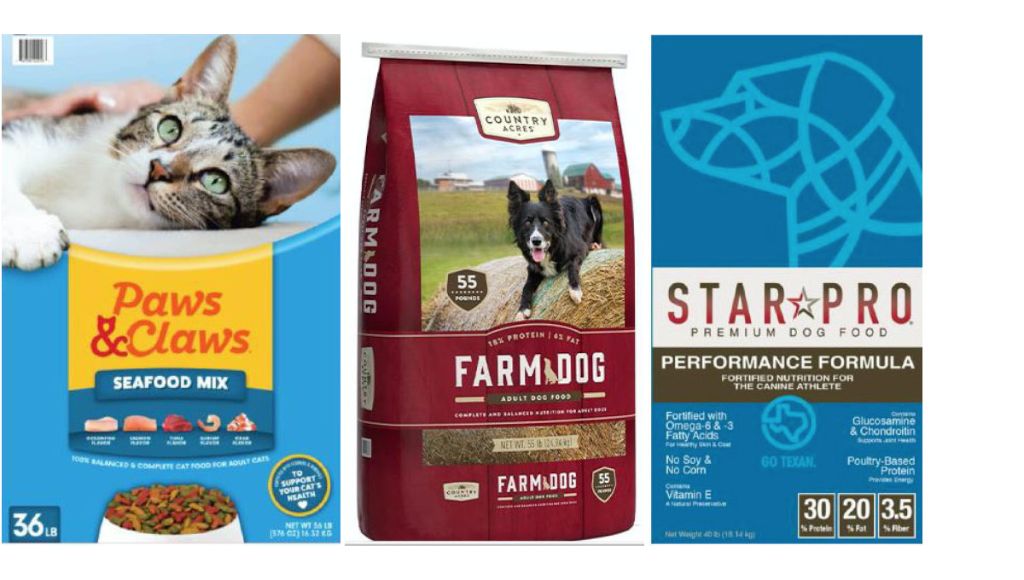Introduction

In recent years, there has been an increase in lawsuits against major dog food companies related to the health and safety of their products. These lawsuits matter because they call into question whether some of the most popular dog food brands on the market today are providing nutritious and safe pet food as they claim. Lawsuits have alleged issues ranging from toxic ingredients to false advertising about the sourcing and quality of ingredients. The allegations underscore the importance for dog owners to research what goes into their pets’ food and fully understand the manufacturing process and supply chain of pet food companies. When choosing a dog food brand, it’s critical to look beyond the marketing claims and carefully examine the actual ingredient lists and nutrition facts. Lawsuits encourage accountability among pet food makers and help bring to light important health considerations for dog owners.
Purina
In February 2015, a class action lawsuit was filed against Nestlé Purina PetCare Company over its Beneful brand of dog food. The plaintiffs alleged that Beneful contained toxins that were making dogs ill and even causing death. Some of the symptoms reportedly included vomiting, diarrhea, weight loss, seizures, and kidney failure.
By March 2016, more than 3,000 pet owners had joined the lawsuit. However, Purina defended Beneful, stating that there was no evidence proving causation between the dog food and the reported illnesses. Purina conducted its own testing which showed Beneful was safe and nutritious.
In May 2017, a judge dismissed the lawsuit after finding insufficient evidence linking Beneful to any serious health issues. While some dogs may have become sick after eating Beneful, the plaintiffs could not conclusively prove the dog food was the cause. Purina reiterated its stance that Beneful is a high quality product. No Beneful products were recalled.
Hill’s Pet Nutrition
In 2018, Hill’s Pet Nutrition was hit with a class action lawsuit over their prescription diet dog foods. The plaintiffs alleged the foods contained toxic levels of vitamin D that was poisoning dogs across the country. The lawsuit specifically focused on Hill’s Prescription Diet and Hill’s Science Diet canned foods that were sold between January 2014 and January 2019[1].
Hill’s denied any wrongdoing but settled the class action in July 2019 for $12.5 million. As part of the settlement, Hill’s agreed to pay up to $250 per household for reimbursement of veterinary bills related to consuming the recalled foods. They also agreed to reformulate their quality control procedures to prevent future issues[2].
Blue Buffalo
In 2015, a lawsuit was filed against Blue Buffalo claiming the company was misleading consumers about the ingredients in their dog food. Specifically, the lawsuit alleged that Blue Buffalo used poultry by-product meal in some of their recipes despite claiming to use “only the finest natural ingredients” without poultry by-products (Source).
The plaintiffs stated that independent lab tests found evidence of poultry by-product meal in some Blue Buffalo products. Poultry by-product meal is made from poultry parts like organs, bones, and feathers which may be considered lower quality than whole meat.

In May 2016, Blue Buffalo agreed to pay $32 million to settle the class action lawsuit, without admitting any wrongdoing. As part of the settlement, Blue Buffalo agreed to change their packaging and advertising statements. While Blue Buffalo denied using poultry by-products, they removed language claiming they never use them.
Diamond Pet Foods
In 2006, there was a major salmonella outbreak linked to Diamond Pet Foods. The FDA tracked at least 23 people who were sickened after handling contaminated Diamond dog food products. The salmonella likely came from a plant in Gaston, South Carolina. Diamond issued multiple recalls of dozens of dog food products due to potential salmonella contamination, impacting many of their brands including Chicken Soup, Country Value, Premium Edge, Professional, and Diamond Naturals. There were reported illnesses in over 20 states. A lawsuit was filed against Diamond by pet owners who claimed their dogs got sick or died after eating the recalled food. The company settled that lawsuit for $3.1 million (CBS News).
In 2012, another salmonella outbreak was traced back to a Diamond Pet Foods production plant in Gaston, South Carolina and led to recalls of 4 Diamond brand products. At least 14 people were infected, though no pet illnesses were confirmed. A class action lawsuit was filed by pet owners alleging negligence, misrepresentation, breach of warranties, failure to warn, strict liability and other claims. The suit sought reimbursement for recalled products and medical costs. Diamond Pet Foods was also accused of continuing to ship out products for days after being notified about potential salmonella contamination. The company agreed to a settlement in 2013 without admitting wrongdoing (Face4Pets).
Evanger’s

In February 2017, Evanger’s faced a lawsuit over pentobarbital contamination in its Hunk of Beef product after five dogs died from eating it. Pentobarbital is a barbiturate used to euthanize animals and is not meant for pet food (Evanger’s Dog & Cat Food Company, Inc.). The lawsuit alleged that Evanger’s was aware of the pentobarbital contamination but failed to warn consumers. It also claimed the company tried to hide the issue by pulling products from stores without issuing a recall. Evanger’s blamed a supplier for the contamination but took responsibility, leading to a voluntary recall of the affected products. However, the FDA found more evidence of pentobarbital in Evanger’s facilities and some of its meat suppliers. This led to further recalls and facility inspections in the following months.
Taste of the Wild
In 2018, a class action lawsuit was filed against Taste of the Wild’s parent company, Diamond Pet Foods, alleging that the company’s grain-free dog food formulas could cause heart disease in dogs. The plaintiffs claimed that Taste of the Wild’s grain-free formulas contain high levels of peas, lentils and potatoes, and that these ingredients can lead to canine dilated cardiomyopathy (DCM).
DCM is a serious heart condition that can lead to congestive heart failure in dogs. There has been an increase in reported cases of DCM in dogs eating grain-free diets rich in legumes and potatoes, prompting the FDA to issue a warning about possible links between diet and heart disease.
The lawsuit alleged that Taste of the Wild was negligent and misrepresented their pet foods as safe and nutritious when they may actually increase the risk of DCM. The plaintiffs sought compensation for veterinary expenses related to DCM diagnosis and treatment.
In June 2021, the case was dismissed by a federal judge in Illinois on technical grounds, but the FDA continues to investigate potential connections between diet and DCM. Pet owners should consult their veterinarian about their dog’s nutritional needs.
Source: https://truthaboutpetfood.com/taste-of-the-wild-pet-food-class-action-lawsuit/
Nutro
In March 2007, Nutro was involved in the massive Menu Foods/melamine recall that impacted the entire pet food industry. Various cans and pouches of Nutro Natural Choice, Nutro Ultra, and Nutro Max dog and cat foods were recalled due to melamine contamination (Source). Melamine is a chemical used in plastics and fertilizers, and when ingested by pets, can cause kidney failure. It was intentionally added by Chinese suppliers to artificially increase the apparent protein content in wheat gluten and rice protein used in pet foods.

The FDA confirmed they were investigating reports of illness and death among pets who ate Nutro products, although a direct link was never proven. Nutro stated that all their products were tested for melamine and other contaminants (Source). The melamine scandal shook public trust in the pet food industry and led many brands, including Nutro, to enhance their supply chain oversight and testing.
Royal Canin
In 2013, Royal Canin faced a class action lawsuit alleging their dog and cat food contained unsafe and unhealthy ingredients. According to Reuters, the plaintiffs claimed Royal Canin used by-products, corn, and other filler ingredients instead of meat. They argued these low-quality ingredients provided little nutritional value and could actually harm pets’ health. The lawsuit centered around Royal Canin’s representations that their foods were premium and healthy, when the plaintiffs believed the ingredients suggested otherwise. Though initially filed in state court, the case was moved to federal court where it was eventually dismissed. However, it represented one of the larger legal challenges against a major pet food brand concerning potentially unsafe or deceptive labeling and marketing practices.
Conclusion
Lawsuits within the dog food industry have revealed questionable practices and misleading marketing tactics by some of the largest manufacturers. Companies like Purina and Hill’s have faced lawsuits alleging their “natural” claims are deceptive when products contain artificial or chemical ingredients. Blue Buffalo, Diamond Pet Foods, and Taste of the Wild were all sued for having undisclosed or different ingredients than advertised on the label. Other companies like Evanger’s and Nutro were accused of having unsafe ingredients or toxins in their pet food.
While most companies have settled the lawsuits or made labelling changes, the impact on the dog food industry has been significant. Consumers are now more aware of potential false advertising and lack of transparency from certain brands. There is greater scrutiny and demand for dog food companies to list all ingredients clearly while avoiding misleading claims. The lawsuits have prompted an overall shift towards more natural, minimally processed, and responsibly sourced ingredients in premium and specialty dog foods. However, legal action may still be necessary in the future to hold companies accountable if they market or formulate their products in dubious or unsafe ways.
